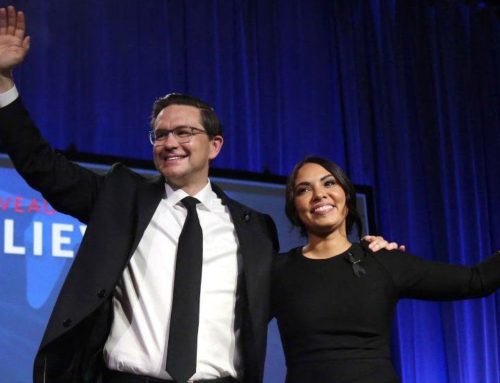A rookie Alberta MLA is taking a stand for healthcare practitioners’ conscience rights. The organization that’s supposed to be standing up for the rights of doctors is, bizarrely, fighting him on it.
Dan Williams, a United Conservative Party MLA for Peace River, introduced a private member’s bill in early November that would amend the Alberta Human Rights Act to enshrine protections of “conscientious beliefs” for healthcare providers, making it so none could be reprimanded for refusing to provide a service they find objectionable, or refusing to refer someone to a practitioner who will.
Such a policy should be uncontroversial in a nation that supposedly protects freedom of religion, though things are never that simple. The Alberta Medical Association says the bill is “unnecessary and inappropriate,” suggesting in a letter to Alberta’s health minister that the province’s regulatory college already provides “appropriate and effective” protections for doctors.
The College of Physicians and Surgeons of Alberta (CPSA) guidelines direct physicians with conscientious objections to things like abortion or birth control to refer patients to practitioners who will offer them. Williams’ bill protects those who don’t wish to do that.
The CPSA’s position is not dissimilar to the one implemented in Ontario by the college there. That policy, cementing a so-called duty to refer, was upheld by the Court of Appeal for Ontario back in May.
The Ontario College of Physicians and Surgeons fought hard in that case to protect its supposed right to strong-arm doctors into offering these referrals. It was this court decision that inspired Williams to table his bill.
It should also inspire us to not buy into the Alberta college’s ‘just trust us’ rhetoric.
Whenever a bureaucratic body tells you something is handled, it’s safe to assume the opposite is true. In this case, the CPSA’s branding of Williams’ bill as “unnecessary,” because of the college’s own policies, misses the point: Williams’ bill is there because the CPSA is not offering the protections healthcare providers need.
This would be like the Canada Revenue Agency telling Canadians a tax cut bill isn’t needed because they’re already handling taxation.
Disenchanting as the Ontario appellate court ruling on conscience rights was, it makes it all the more important for politicians to stand up for the freedoms the courts are supposed to be protecting themselves. It’s the only way to reclaim this power that is meant to be the prerogative of lawmakers.
Activist judges impose their own moral codes on the country, irrespective of what the law says. As more and more cases about religious freedom and personal conscience rights have come before the courts in recent years—from Trinity Western University to assisted suicide—this problem has become more apparent, though it is by no means a new development.
Former Chief Justice Beverley McLachlin wrote in her memoir, published earlier this year, that she considered recusing herself from the 1993 Sue Rodriguez assisted suicide case because of her experiences with her husband, who had asked her for help ending his life while he was dying of cancer years earlier.
She didn’t comply, but when the issue came before the court, she nevertheless told the chief justice at the time that she felt too “close to it.” He suggested her lived experiences were not disqualifying factors when it came to impartiality, urging her to hear the case. She did, and then in 2015 heard the Carter case, which resulted in a unanimous rebuke by the Supreme Court of the assisted suicide prohibition.
While McLachlin was just one vote out of nine, it’s difficult to not suspect that her admitted personal connection to the issue may have shaped what was supposed to be her view of assisted suicide’s legality, not morality.
Politicians are free to enact laws based on their personal opinions and ideologies as they’re at the mercy of voters with their own opinions and ideologies, who can vote them into or out of office. That isn’t the role of jurists, who are subject to no such accountability.
As the Association for Reformed Political Action’s legal counsel, André Schutten, told me, “That is not their job. It is Parliament’s job. The tendency of our Supreme Court (and lower courts as well) is not to be faithful to what the law is, but rather to change the law to what they prefer it to be,” he said. “That’s the problem.”
It is indeed, which is why bills like the one Williams put forward must be supported by Canadians who care about religious freedom. Because there’s no guarantee the courts will.





